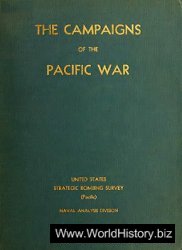The Siwan al-hiikma ascribes to Theophrastus the saying that control of desire is as difficult as control of anger - that is to say that no good thing is easy to achieve. The eleventh century Egyptian historian and savant, Mubashshir b. Fatik, who was one of the most important collectors of gnomic sayings, recalls that according to Theophrastus, the educated person (adtb) is one who speaks of the good qualities of people and conceals the evil. The Siwan al-hiikma also emphasizes qualities that will become proper to the ideal philosopher in Islam and included among them those of the ruler, whether philosopher or Imam, of the ‘‘perfect cities’’ described by al-FarabI and the Ikhwan al-Safi’. These include eloquence as separation of truth and lies, generosity, piety, sound judgment, and justice. Al-FarabI reports that the followers of Theophrastus placed purification of morals at the basis of knowledge because, as Plato said, ‘‘whoever is not clean and pure should not approach the clean and pure’’ (Gutas 1992:295; a similar position is reported by Abu l-Faraj ibn al-Tayyib). The more a soul leaves aside worldly pleasures, the more easily it acquires philosophy, becoming like a lamp luminous in itself, and illuminating others. From this, it can be inferred that it becomes similar to those, including some ancient wise men, who were illuminated by the lamp of prophecy, as al-ShahrastanI says. Again, philosophy is the wealth of the soul, which grants its survival; people must also learn how to make a good use of worldly wealth. A saying reported by the famous physician and translator Hunayn b. Isljaq emphasizes the importance of action over speech.
The tenth century writer al-Mas‘udI, one of the main, if debatable, sources for Arabic thought, counts Theophrastus among the representatives of the political philosophy (al-falsafa al-madaniyya) that began with Socrates and continued with Plato and Aristotle. The Siwan al-hikma reports Theophrastus’ answer to Alexander the Great about what makes a king’s rule good: ‘‘When the subjects obey the king and the king acts according to tradition and justice’’ (Gutas 1992:455). It should be noted that the Arabic words for tradition and justice, sunna and ‘adl, correspond to the political and religious rule of the Prophet.
Muslim thinkers of different persuasions shared and developed theories on physics, psychology, and ‘‘metaphysics’’ - ‘‘theology’’ for the Arabs - similar to those attributed to Theophrastus; this could inform inspection of the Greek sources of Muslim philosophy. But the available witnesses testify that Theophrastus had no good opinion of music, unlike many Muslim thinkers who relate to music the ability to influencing moral behavior.
See also: > Abu Sulayman al-SijistanI al-MantiqI
> Doxographies, Graeco-Arabic > al-FarabI, Abu Nasr
> al-GazalI, Abu Hamid Mulrammad > Ibn Masarra, Muhammad ibn ‘Abdallah > Ibn Rushd, Muhammad ibn Ahmad al-HafId (Averroes) > Ibn Sab‘In, ‘Abd al-Haqq > Ibn SIna, Abu ‘AlI (Avicenna) > Ibn al-Tayyib
> Ikhwan al-Safii’, Encyclopedia of > al-Mubashshir ibn Fatik > Natural Philosophy, Arabic > Porphyry, Arabic
> al-ShahrastanI, Muljammad ibn 'Abd al-KarIm




 World History
World History









